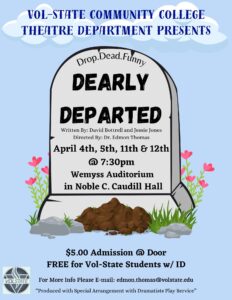By Randall Barnes
Vanderbilt University Dr, Elsa Mercado presented “Latinx Experience through Storytelling” at 11:30 a.m., Thursday in Wood Campus Center, Mary Nichole Dining Room B.
According to a digital flyer by the Office of Diversity and Inclusion, “Dr. Elsa Mercado utilizes stories and family accounts to spotlight the legacy of immigrant families and New Americans.”
According to the same flyer above, “These shared stories serve to help strengthen our Latinx communities and promote the shared experiences of our Vol State students.”
In the last LES event, which was Jan 31 of this year, the event was split into two parts: the first half was focused on interview preparation with Dr. Mercado speaking of the qualities of a successful professional interview, what to expect, and what not to do. The second half of the event was officially Latinx Experience through Storytelling, participants sharing their stories in partner and group activities in order to connect with the Latinx community at Vol State.
According to Vanderbilt University at as.vanderbilt.edu, Dr. Mercado, for her research,” focuses on Spanish-speaking Latin Americans, and why their voices have been excluded for so long and what they have to offer.” Dr. Mercado said, “We look at so many places where their voices are missing or invented and they just don’t capture [reality].”
According to the same site, “This strong connection to her heritage also influences much of what Mercado Sanchez does the campus. The drive to make connections and understand others is the hallmark of what she seeks to accomplish.”
The question first asked about Latinx Experience is: “What is ‘latinx’ mean?” Latinx, pronounced “lah-teen-ex”, is the word that many scholars — such as those of the University of California (other universities adopted the term before this one, one should mention) — are using in place of “latina” and “latino” so that all aspects, that’s the hope, may be included.
The word “latinx” has received pushback from more conservative — that refers to the aversion to the change of tradition, not the political affiliation — Hispanics who find the word to be elitist, despite the intentions of the word’s creation to be the opposite.




Comments are closed.